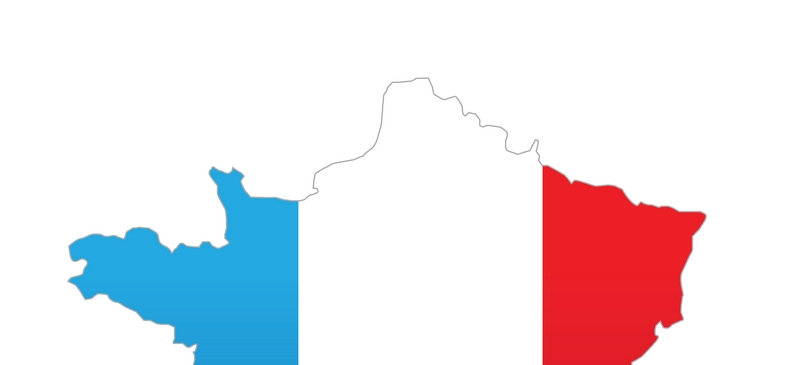
Europe will survive a French Non
It's easy to argue that the European Union (EU) has been in a state of crisis since its inception more than 50 years ago. France voted “No” to European defense cooperation in 1954 and vetoed British EU membership in the 1960s. Denmark dealt a blow with its nej to the 1992 Maastricht Treaty and to the single currency in 2000. The Irish rejected the Treaty of Nice in 2001, and the Swedish voted no to the euro in 2003. Yet, somehow, the European project has taken Samuel Beckett's injunction to heart: If at first you don't succeed, “Fail, fail again, fail better.” It has emerged stronger from every setback.
Should, as recent polls suggest, the French vote non to ratifying the European Constitution on May 29, there is no reason to imagine the EU won't emerge from that experience stronger once again. Of course, opinion polls have a tendency to be wrong, and there are hopes in Europe that the pro-constitution lobby will now come out fighting. But even in the event of a Gallic no, the Euroskeptics should not take too much heart. Rather than spelling the end of the European project, this referendum points to an EU that is maturing politically.
A French no will not be a vote against the EU, but the result of a clash between social integrationists and liberal expansionists. Until the 2004 European elections, there was no clear way for EU citizens to vote for or against (or even to debate) the kind of Europe they wanted. Previous elections for the European Parliament were never about the direction of Europe. Rather, they merely offered a cost-free way of punishing unpopular national governments. National elections are about health, education, jobs, and taxes—pretty much anything apart from Europe. Even previous referenda on European treaties have offered a pseudo-choice between “more” or “less” Europe, rather than acknowledging that there can be a choice between different visions of integration. The classic example of that was France's referendum on the Maastricht Treaty in 1992, when there was almost no discussion in France of the single currency's “convergence criteria,” which set the all-important limits on national debt and inflation. The only question was whether you were for or against European integration.
Today, the debate over “Europe, right or wrong” is ending. That choice is being replaced by a battle between “Europe, right or left.” The European elections of 2004 were the first to have a direct influence on the appointment of the European Commission's president. The success of the center-right parties in that election resulted in the appointment of liberalizing, free-marketer José Manuel Durão Barroso of Portugal as commission president. The current French “No” campaign is a reactionary backlash against his agenda, against his vision of a free-market, liberal trading Europe. It is not a campaign against Europe per se.
Should France's “No” campaigners succeed, there is still reason for optimism. That's because the best bits of the constitution will probably survive. It is possible that a French no vote could result in the EU's sticking solely with its current treaties, or that the other 24 member states will proceed with ratification sans France. But the more likely outcome is that Europe's leaders will convene a mini intergovernmental conference to salvage the parts of the constitution that matter most. Yes, the grand rhetoric of the document's preamble will be lost, but key elements will be rescued: the creation of the new post of European foreign minister, the External Action Service (essentially, a diplomatic corps), a weighted majority voting system, and the ability of member states to apply an “emergency brake” on European integration. And because it won't be a grand constitution, it won't necessarily trigger referendums across the EU.
That is precisely how political-economic unions mature. For the pioneers of the European Coal and Steel Community in 1951—most importantly France and Germany—the memories of war were fresh and the European project was fragile, a bicycle that needed to be peddled constantly lest it fall over. Fifty years on, a French “No” could never wipe out a half century of integration. With its 80,000 pages of law, its common market, single currency, and increasingly common defense force (that has served in Bosnia, Macedonia, and the Democratic Republic of the Congo), the EU is here to stay, however the French decide to vote. (A no vote would certainly not destroy the European project, but it might set it back by a couple of years. Let's hope the French vote yes—it would be a shame to watch European leaders spend the rest of the year salvaging the constitution, rather than tackling meaningful, real world issues such as Iran's going nuclear, Turkish accession to the EU, and democracy in Central Asia and the Middle East.)
The only thing that will be destroyed by France's voting no will be its claims to a leadership role within Europe. If France balks, it will be exposed as a naked defender of national interest that can no longer trade off its status as a founding member of the EU. That moral leadership within Europe will remain out of France's grasp as long as it is antienlargement, anti-American, and anti-change. And the crisis will be in France, not Europe.
Mark Leonard was director of foreign policy at the Centre for European Reform (2005-2007)
